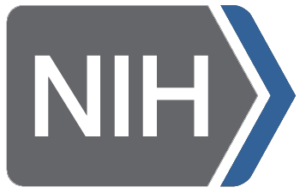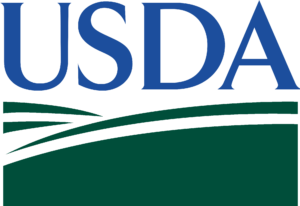RCR training is essential to the preparation and long-term professional development of current and future generations of UT researchers, and includes the following topics:
Conducting Research
- Writing Proposals/Obtaining Funding
- Data Acquisition, Management, Sharing & Ownership (see Data Management)
- Scientific Rigor & Reproducibility
- Lab Note Books & Graphical Presentation of Data
- Time Management & Personal Responsibility
- Collaborative Research & Team Science (see Collaborators & International Engagement)
- Mentor/Trainee Responsibilities (see UT Graduate School & Policy RE0001 Appendix B Expectations of PIs)
- Reporting & Managing Conflicts of Interest & Commitment (See Research Conflicts of Interest & Commitment)
- Disclosing Inventions & Protecting Intellectual Property (See UT Research Foundation)
- Research Security and Export Control
- Protecting Human Subjects in Research
- Responsible Animal Care & Use
- Lab Safety
- Biosafety (including, but not limited to recombinant DNA/RNA, select agents, and toxins)
- Radiation Safety (including x-rays, lasers, and radioactive materials)
- Research Misconduct (see UT Policy RE0001)
Publishing & Reporting Research Findings (see Publication Practices)
- Writing a Research Article
- Publication Practices and Responsible Authorship
- Peer Review
- Posters and Oral Presentations
- Attending Professional Meetings
Other Areas
- Whistleblowing
- Dispute Resolution
- Harassment, Sexual Harassment, & Inappropriate Conduct (see UT Title IX website)
The Division of Research Integrity and Assurance and its academic partners provide the following RCR training opportunities for UT faculty, staff, students, postdoctoral scholars and fellows, and research visitors:
- UT CITI online RCR courses*
- RCR Workshops, including workshops upon request
- For-credit research ethics courses*, such as AGNR 217 – Research Ethics, Compliance, and Methods, EEB 451 – Research Ethics, CHEM 503 – Chemical Research Skills and Ethical Conduct, ANSC 525 – Research Ethics for the Life Sciences, CEM 525 – Research Ethics for the Life Sciences, PLSC 525 – Research Ethics for the Life Sciences, or BCMB 614 – Journal Club in the Responsible Conduct of Research
- NIH Office of Research Integrity (ORI) Resources/Courses, Integrity in Scientific Research Videos and RCR Casebook
While UT expects all faculty, staff, students and postdoctoral scholars and fellows to participate in RCR training, some sponsors require training. For example:
 National Institutes of Health (NIH) – RCR training is required for trainees, fellows, participants, and scholars participating in NIH Institutional Research Training Grants, Individual Fellowship Awards, Career Development Awards (Institutional and Individual), Research Education Grants, Dissertation Research Grants, and other grant programs with a training component that requires instruction in RCR as noted in the Funding Opportunity Announcement. The requirement applies to the following programs: D43, D71, F05, F30, F31, F32, F33, F34, F37, F38, K01, K02, K05, K07, K08, K12, K18, K22, K23, K24, K25, K26, K30, K99/R00, KL1, KL2, R25, R36, T15, T32, T34, T35, T36, T37, T90/R90, TL1, TU2, and U2R . The NIH RCR requirement includes substantive face-to-face training. RCR instruction must be taken at least once during each career stage, at least every four years.
National Institutes of Health (NIH) – RCR training is required for trainees, fellows, participants, and scholars participating in NIH Institutional Research Training Grants, Individual Fellowship Awards, Career Development Awards (Institutional and Individual), Research Education Grants, Dissertation Research Grants, and other grant programs with a training component that requires instruction in RCR as noted in the Funding Opportunity Announcement. The requirement applies to the following programs: D43, D71, F05, F30, F31, F32, F33, F34, F37, F38, K01, K02, K05, K07, K08, K12, K18, K22, K23, K24, K25, K26, K30, K99/R00, KL1, KL2, R25, R36, T15, T32, T34, T35, T36, T37, T90/R90, TL1, TU2, and U2R . The NIH RCR requirement includes substantive face-to-face training. RCR instruction must be taken at least once during each career stage, at least every four years. National Science Foundation (NSF)* – Faculty and senior personnel, undergraduate students, graduate students, and postdoctoral researchers participating in NSF research projects must receive appropriate training and oversight in the responsible and ethical conduct of research (RECR).
National Science Foundation (NSF)* – Faculty and senior personnel, undergraduate students, graduate students, and postdoctoral researchers participating in NSF research projects must receive appropriate training and oversight in the responsible and ethical conduct of research (RECR).
 United States Department of Agriculture National Institute of Food and Agriculture (USDA NIFA)* – NIFA requires program directors, faculty, undergraduate students, graduate students, postdoctoral researchers, and any staff participating in the research project receive appropriate training and oversight in the responsible and ethical conduct of research (see Research Terms & Conditions – Agency Specific Terms & Conditions). The general content of the ethics training will, at a minimum, emphasize three key areas of research ethics: authorship and plagiarism, data and research integration, and reporting misconduct. This requirement extends to UTIA’s research capacity grant programs, such as Hatch Regular, Hatch Multistate, McIntire-Stennis, and Animal Health and Disease Research. (See NIFA Capacity Award Terms & Conditions).
United States Department of Agriculture National Institute of Food and Agriculture (USDA NIFA)* – NIFA requires program directors, faculty, undergraduate students, graduate students, postdoctoral researchers, and any staff participating in the research project receive appropriate training and oversight in the responsible and ethical conduct of research (see Research Terms & Conditions – Agency Specific Terms & Conditions). The general content of the ethics training will, at a minimum, emphasize three key areas of research ethics: authorship and plagiarism, data and research integration, and reporting misconduct. This requirement extends to UTIA’s research capacity grant programs, such as Hatch Regular, Hatch Multistate, McIntire-Stennis, and Animal Health and Disease Research. (See NIFA Capacity Award Terms & Conditions).
*Completing a UT Knoxville CITI online RCR course will meet the NSF or USDA NIFA requirement for training. To determine if other training provided by UT or external entities meets sponsor RCR requirements, contact Jane Burns, Director of Research Integrity, at janeburns@utk.edu.
UT’s Policy and Procedures on Responsible Conduct in Research and Scholarly Activities (RE0001) provides guidance on responsible conduct of research, including:
- Appendix A: Sharing, Retention, and Ownership of Research Data and
- Appendix B: Expectations of the Principal Investigator.
Policy RE0001 also serves as the University’s misconduct policy. Allegations of misconduct are handled in DRIA, overseen by Interim Associate Vice Chancellor for the Responsible Conduct of Research Brad Day (bradday@utk.edu).
UT Code of Conduct provides guidance on ethical and responsible conduct of University activities.
RCR – Guide to Resources – 10.5.2022 provides links and helpful information across all topic areas of the responsible conduct of research.
Federal Policies and Resources
- National Academies of Sciences, Engineering, and Medicine website on Reproducibility and Replicability
- NSF website on Responsible and Ethical Conduct of Research
- NIH Guidelines & Policies for the Conduct of Research
- DHHS Office of Research Integrity
- USDA National Institute of Food & Agriculture guide on Responsible and Ethical Conduct of Research
Questions or concerns related to Research Integrity or RCR training? Contact Dr. Joe Miles, Research Integrity Officer (joemiles@utk.edu) or Jane Burns, Director of Research Integrity (janeburns@utk.edu or 865-974-3526).
